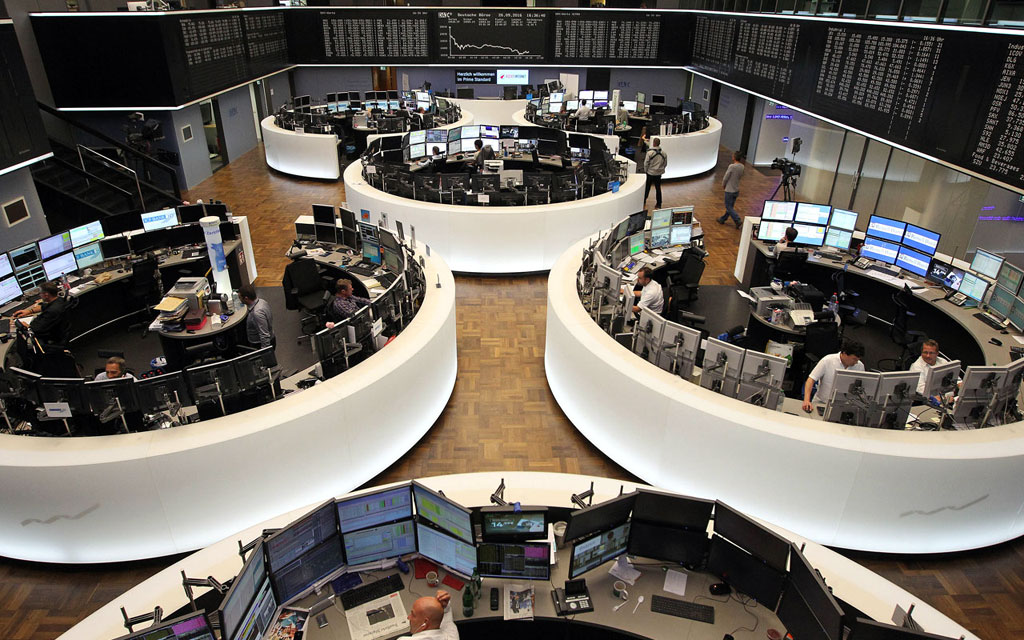 LONDON: The dollar took a breather at a five-month high on Thursday, though government borrowing costs continued to grind upwards as oil prices hit their highest since 2014 at almost $80 a barrel.
LONDON: The dollar took a breather at a five-month high on Thursday, though government borrowing costs continued to grind upwards as oil prices hit their highest since 2014 at almost $80 a barrel.
Ten-year US government Treasury yields, which are a key driver of global borrowing costs, neared a 7-year high of 3.12 percent as higher oil pointed to higher inflation and followed Wednesday's upbeat US retail sales numbers.
Europe's FX traders nursed dollar index positions after its latest surge, but euro/dollar was struggling to keep a foothold back above $1.18 and dollar/yen hit its highest level since late January at 110.57.
"The big turnaround was the Japanese yen, there is clearly big time (US vs Japan) rate sensitivity there," said Saxo Bank's head of FX strategy John Hardy.
"The correlation (between moves in yields and yen) is likely to one-to-one almost, and without any risk appetite meltdown that should continue."
World and European shares did creep higher but other two big macro market spotlights stayed on Italy and Turkey.
Turkey's lira was on the slide again as concerns persisted about what an expansion of President Tayyip Erdogan's powers could mean if he wins elections in the country next month as widely expected.
It came despite the central bank saying on Wednesday that it would take action against a sell-off in the currency.
Benchmark Italian government bond yields nudged higher after a 16 basis point jump on Wednesday following reports, subsequently denied, that the prospective Five Star/League coalition government had drafted an economic plan that would seek 250 billion euros of debt forgiveness from the European Central Bank.
While few people see that as either a realistic proposal or one that would remain in the coalition's agenda, the tone of the new government's stance toward euro zone rules was seen as confrontational and spooked some investors.
Markets are now eagerly awaiting the final agreement to see what details remain. Two-year Italian government yields are now back in positive territory for the first time in almost a year - the only other positive yielding two-year euro zone government bond is Greece.
"I'm still sceptical on the euro, there is a lot of headline risk," Saxo bank's Hardy said, adding the worry for lira was that investors will bolt even before they know Erdogan's post- election plans.
BACK TO THE FUTURES
The other major mover was oil which was nearing the $80 a barrel threshold for first time since late 2014.
With the global economy running at healthy clip demand remains strong, while US President Donald Trump's plans to re-impose sanctions on Iran could soon cut global supply by a million barrels a day.
Brent crude futures were last at $79.47 per barrel, up 0.12 percent from their last close, while US crude was at $71.67 a barrel, up 18 cents. Both are now up almost 30 percent since February and 80 percent since June last year.
ANZ bank said on Thursday that Brent was "now threatening to break through $80 per barrel ... (as) geopolitical risks continue to support prices, (and as) an unexpected fall in inventories in the US got investors excited."
US bank Morgan Stanley meanwhile raised its Brent price forecast to $90 per barrel by 2020 due to a steady increase in demand.
Back in the currency markets, sterling rallied against both the dollar and the euro after a UK newspaper reported that Prime Minister Theresa May would tell Brussels that Britain was prepared to stay in the European Union's customs union after a transitional arrangement beyond 2021.
Pressure on Mexico's peso returned as hopes for a new-look NAFTA trade deal with the US and Canada were pushed back and as the country's central bank said its systems had been hit by a 300 million pesos ($15.33 million) cyber attack.


























Comments
Comments are closed.